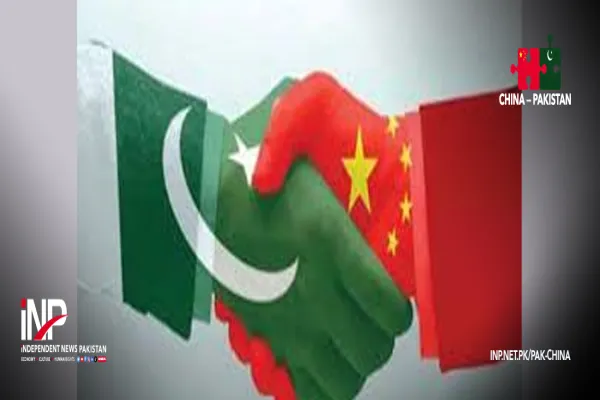i NEWS PAK-CHINA
China is gearing up to host the largest sports event in Asia, the Asian Games 2022, in Hangzhou later this year. Originally scheduled for September 2022, the Games faced an unfortunate postponement due to the unprecedented challenges posed by the COVID-19 pandemic. However, according to a report carried by Gwadar Pro on Friday, China's unwavering determination and resolute measures in combating the virus have instilled confidence in athletes and spectators, setting the stage for an extraordinary sports extravaganza. This grand event provides China with a strategic opportunity to harness its soft power and engage in public diplomacy, effectively bolstering its international reputation and expanding its sphere of influence on the global stage.
The Asian Games, a prestigious and highly anticipated multi-sport extravaganza exclusively dedicated to the participating nations of Asia, operates on a quadrennial basis, similar to the renowned Olympic Games. Overseeing the event's intricate operational and administrative facets is the esteemed Asian Games Federation, while China, with immense pride, assumes the role of host for the third time since its inaugural venture in 1990. China's remarkable track record in successfully hosting international sports events shines brightly through its recent triumphant execution of the Winter Olympics in Beijing 2022.
This invaluable experience has bolstered China's prowess in organizing and orchestrating grand-scale athletic spectacles, solidifying its position as a formidable host. China has showcased its expertise in hosting large sporting events within its borders and has incorporated approximately 61 sports programs for the Asian Games. China renovated existing sports arenas and built new ones in Beijing for the Winter Olympics, leaving no stone unturned in creating a world-class experience for athletes, administrators, and audiences alike. The General Assembly of the Olympic Council of Asia predicted in 2018 that the Asian Games would likely create a new industrial cluster in China and transform its host city Hangzhou into a modern city.
Subsequently, the Asian Games in China play a crucial role in shaping China's image. Chinese sports are deeply rooted in Chinese culture, and this cultural influence is projected through the games. While sportsmanship is a universal value, the Chinese people have their own distinctive athletic and national attitude. This inherent characteristic of the Chinese people has a magnetic effect on global communities, drawing them towards China to immerse themselves in the Chinese sports world.
As part of efforts to promote their cultural heritage, China recently organized a two-day seminar in collaboration with the National Olympics Committee, where they taught basic Chinese greetings to the guests. They shared phrases like "Nihao" (Hello) and "Xiexie" (Thank You), showcasing the linguistic customs of China. This event exemplifies how sports and public diplomacy intertwine, allowing China to foster deeper connections with the international community.
China's sports diplomacy strategy during the Asian Games serves as a valuable opportunity to foster connections and promote public diplomacy. To capitalize on these initiatives, China has established guidelines for both athletes and visitors. These guidelines emphasize the importance of respecting public spaces by adhering to designated No-Smoking zones, protecting the environment, and refraining from cheek kisses and hugs during social gatherings.
The Hangzhou Asian Games Organizing Committee (HAGOC) encourages visitors to embrace the cultural experience by using chopsticks when enjoying Chinese cuisine. These measures not only showcase China's commitment to public etiquette and environmental stewardship but also provide visitors with a deeper understanding and appreciation of Chinese customs. China's approach to sports diplomacy during the Asian Games effectively highlights the nation's adherence to local norms and customs while showcasing its rich culture, language, cuisine, and hospitality.
This seamless integration of public diplomacy requires careful planning and unwavering commitment from strong leadership. By prioritizing these efforts, China successfully fosters strong relationships with individuals both within the region and beyond, ultimately cultivating a widespread sense of goodwill and admiration for China on the global stage. Through the Asian Games, China demonstrates its ability to connect with people on a profound level, solidifying its position as a respected and influential nation worldwide.
Credit : Independent News Pakistan-INP









